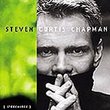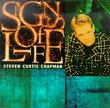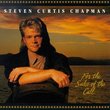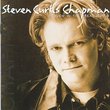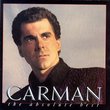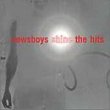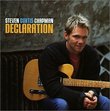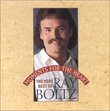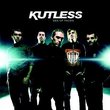| All Artists: Steven Curtis Chapman Title: Great Adventure Members Wishing: 0 Total Copies: 1 Label: Sparrow Release Date: 11/18/1992 Genres: Pop, Christian & Gospel Styles: Adult Contemporary, Pop & Contemporary Number of Discs: 1 SwapaCD Credits: 1 UPC: 077775132823 |
Search - Steven Curtis Chapman :: Great Adventure
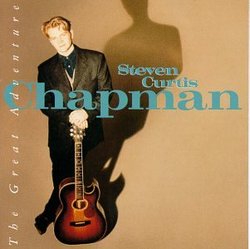 | Steven Curtis Chapman Great Adventure Genres: Pop, Christian & Gospel
![header=[] body=[This CD is available to be requested as disc only.]](/images/attributes/disc.png?v=a4e11020) ![header=[] body=[This CD is unavailable to be requested with the disc and back insert at this time.]](/images/attributes/greyed_disc_back.png?v=a4e11020) ![header=[] body=[This CD is available to be requested with the disc and front insert.]](/images/attributes/disc_front.png?v=a4e11020) ![header=[] body=[This CD is unavailable to be requested with the disc, front and back inserts at this time.]](/images/attributes/greyed_disc_front_back.png?v=a4e11020) |
Larger Image |
CD DetailsSimilar CDs
Similarly Requested CDs
|
Member CD ReviewsReviewed on 6/20/2007... Classic SCC--Contemporary Christian pop Reviewed on 3/22/2007... I have a different UPC number (1762713282), butit is thesame songs and same cover as shown. This is the best album he has produced. The songs stay in your head after you listen. ( I listened to this album over and over). Godly and wonderful, with a very young sound. He uses a pac man background in one of his songs. FUN! I make a copy of all my cds and the orignal is put away. CD is old but in great condition. The front cover has a small crack in it.
CD ReviewsAn Important Step in Chapman's Career, but the Best Was Yet Chip Webb | Fairfax Station, VA | 07/23/2007 (3 out of 5 stars) "Steven Curtis Chapman clearly had ambitions for The Great Adventure (1992), his fifth studio album since his solo debut First Hand was released five years earlier. His three previous projects, Real Life Conversations (1988), More to This Life (1989), and For the Sake of the Call (1990), each had several high-charting contemporary Christian music (CCM) singles. Furthermore, Chapman had been rewarded by his peers with multiple Dove Awards; both his peers and the public obviously liked what he was doing. But the pop/country artist didn't feel he had "arrived" yet, so he set his sights high for this project. His efforts were rewarded: the memorable singalong title track and his subsequent first concert tour with a band made him the most popular contemporary Christian artist around, a title that he would hold for about a decade. The album begins well, with J.A.C. Redford's clearly western-inspired instrumental "Prologue." It's an enjoyable instrumental piece that nicely leads into the title track. Unfortunately, it's less successful as a setup for the entire album because the album falls short (a bit) in thematic unity. The title track itself is probably the song for which Chapman will most be remembered, with the possible exceptions of "I Will Be Here" and "Dive." Despite the somewhat tired analogy on which the song hinges, Chapman's lyricism here has progressed light years beyond that seen on his earliest albums. (Just compare the multitudes of clichés on Real Life Conversations with the lyrics on this album.) The next three tracks successfully develop the album's main theme by defining what this adventure looks like. Chapman connects the Fall of humanity with Christ's redemption in a likeable pop shuffle called "Where We Belong." He then writes of human beings' need for each other after the Fall (think of Adam and Eve away from the Garden of Eden in a hostile world) through a personal, country-tinged power ballad of commitment to his wife, "Go There With You." The strings add a good deal to this impressive song. Finally, Chapman defines what paradise looks like today, outside of the Garden of Eden, in the irresistible, driving "That's Paradise." The answer: paradise is about salvation through Christ, loving God, and loving others. The remaining six tracks are more practical; they illustrate the challenges involved in pursuing the "great adventure." The first three deal with discernment. "Don't Let the Fire Die" is an impassioned, moving plea from Chapman to a friend who is losing his heart for God. It's arguably the album's best song. "Got to B Tru" is a fun tune that uses the singer's inability to rap well as an illustration of how Christian witness must be real rather than forced. "Walk with the Wise" is a pretty ordinary contemporary Christian song -- nothing horrible, but nothing exceptionable, either. The title sums up the message. Two tracks then focus on our relationships with others. "Maria," about a hurting soul, should be a moving ballad but mostly fails to connect with this listener. It does have a surprising Spanish musical tinge and an unusual vocal delivery from Chapman, but otherwise is unremarkable. Much better is "Still Called Today," a plea for human reconciliation that benefits from a nice guest vocal by BeBe Winans and a just-as-strong performance from Chapman. Surprisingly, an album that begins with a grand, sweeping statement comes to a climax with such an intimate song. Finally, Chapman sums everything up with "Heart's Cry," a song of personal commitment to Christ. It's a quiet, effective denouement that demonstrates the resolve called for in "Don't Let the Fire Die." Musically, The Great Adventure is mostly pop/country, with the accent as much on country as pop. Popwise, the album sounds like it most fits in the late 1980s, with some nods to the mid-80s and early 90s scattered throughout. It's not hard to start singing the lyrics to Don Henley's "Last Worthless Evening" or John Waite's "Missing You" over some of "Still Called Today's" chords -- and Chapman's lyrics to that song come across as his answer to Henley's "Heart of the Matter." In retrospect, The Great Adventure probably had the success it did because of the optimism, fun, and joy that Chapman communicates in the title track, "That's Paradise," and "Got to B Tru" (all of which were singles). That sense of wonder had been glimpsed before occasionally (e.g., in More to This Life's "Treasure Island" and "Way Beyond the Blue") and would be featured prominently on Chapman's next studio album, Heaven in the Real World (1994). The Great Adventure also clearly was not hurt by having the biggest production values of any of Chapman's first five albums. Furthermore, as on his previous two albums, Chapman continued to push himself in different directions vocally. These two features intertwine throughout the album to mostly commendable effect. Chapman aims for both a bigger sound and, in the album's early tracks, a bigger vocal delivery, and succeeds on both counts. Still, despite its success, The Great Adventure neither addresses its subject matter as well as For the Sake of the Call covered its own material nor is as enjoyable from a pop perspective as More to This Life. The album is very strong up through "Don't Let the Fire Die," with those first five songs (I'm not counting Redford's "Prologue") arguably the best batch that Chapman had recorded up to that point in time. It's disappointing, then, to watch Chapman lose his momentum in the album's second half with a succession of middling-to-very-good, but never (with the exception of "Heart's Cry") great, songs. Chapman would start to realize his potential on Heaven in the Real World, but then really get a shot in the arm under producer Brown Bannister's oversight beginning with Signs of Life (1996). The Great Adventure was an important step in his career, but the best was yet to come. Three-and-a-half stars." He's a little bit country... Larry Hehn | Toronto, ON Canada | 10/02/2004 (5 out of 5 stars) "For me, this album marks the beginning of Steven Curtis Chapman establishing himself as a songwriter. Yes, he has had very strong and meaningful lyrics on previous albums, but here he does a much better job of matching the music to the flavor and intensity of the words.
He blasts right out of the gate with one of my all-time favorites, The Great Adventure. He then covers a wide variety of tempos and styles, from the tongue-in-cheek rap sound of Got To B Tru, to the upbeat celebration of God's grace in That's Paradise, to the soft, contemplative Heart's Cry. How he can corral such a wide range of styles and make them work in one album is a mystery to me, but hey, it works anyway. Larry Hehn, author of Get the Prize: Nine Keys for a Life of Victory" |

 Track Listings (11) - Disc #1
Track Listings (11) - Disc #1